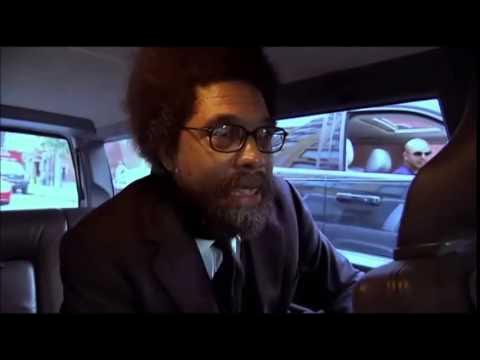Examined Life - Cornel West
Summary
TLDRThis thought-provoking discussion delves into philosophy, self-examination, and the pursuit of truth. It explores how examining oneself requires courage and discipline, emphasizing that philosophy is not confined to academia. The speaker reflects on mortality, transformation, and the limitations of human understanding. With references to Socrates, Plato, and existential thinkers, the conversation highlights the importance of embracing failure and imperfection in the quest for wisdom. Music, art, and culture are also linked to philosophical inquiry, demonstrating how different mediums influence our understanding of life, truth, and meaning.
Takeaways
- 🧠 The unexamined life is not worth living, as Socrates argues, and self-examination requires immense courage and discipline.
- 🔍 Critical self-reflection involves questioning untested assumptions and presuppositions, leading to personal transformation.
- 💪 Courage is essential in philosophy, as it allows individuals to confront the dark corners of their souls and think critically.
- 🕊️ Philosophers like Plato and Montaigne connect truth-seeking with learning how to die, emphasizing personal transformation over static truth.
- ⚖️ Truth is fallible and elusive, meaning human beings can never fully grasp it. We can only make claims about small truths and remain open to revision.
- 🎶 The speaker emphasizes the importance of music, particularly jazz and blues, as a philosophical and existential expression of life’s rawness and complexity.
- 🎭 Romanticism’s obsession with wholeness and harmony is critiqued, with the speaker advocating for embracing dissonance and catastrophe, particularly in art forms like jazz.
- 💔 Failure and disappointment are integral to the human experience, but they should be reframed as part of the journey toward greater meaning and achievement.
- 🇺🇸 America’s idealistic self-image as a perfect democracy is challenged by its history of injustice and oppression, calling for a more realistic and humble approach to progress.
- 🔄 The search for meaning is a continuous process, not an end goal. Nihilism and meaninglessness are significant challenges, but striving toward meaning is itself valuable.
Q & A
What does Socrates mean by 'the unexamined life is not worth living'?
-Socrates believes that a life without self-reflection, where one does not question their beliefs, assumptions, and actions, is not fulfilling. It is essential to critically examine oneself to grow and live meaningfully.
What is the role of courage in philosophical self-examination according to the speaker?
-The speaker emphasizes that examining oneself requires great courage, as it involves confronting uncomfortable truths about oneself. It takes more courage to explore the 'dark corners' of one’s soul than to engage in physical combat.
Does one need to attend school to become a philosopher?
-No, the speaker argues that becoming a philosopher does not require formal education. Philosophy is about the love of wisdom and the discipline to think critically, which anyone can pursue with courage and self-examination.
How does the speaker view death in the context of philosophy?
-Death, in philosophical terms, is not seen as a final event but as a metaphor for transformation. The speaker refers to Montaigne’s idea that 'to philosophize is to learn how to die,' meaning that accepting and reflecting on death leads to personal growth and change.
What is the connection between truth and suffering in the speaker’s view?
-The speaker cites Adorno’s idea that the condition of truth is to allow suffering to speak. Truth is not just a set of propositions about the world but is deeply tied to human experiences, especially suffering, which gives it existential meaning.
How does the speaker differentiate between Truth (with a capital 'T') and 'truth' (with a lowercase 't')?
-The speaker explains that humans can never fully grasp absolute Truth (with a capital 'T'). Instead, we make fallible, revisable claims about 'truth' (lowercase 't') that are always open to revision. The pursuit of truth is ongoing and never complete.
Why does the speaker believe music, especially jazz and blues, is central to understanding philosophy?
-The speaker believes music, particularly jazz and blues, captures the rhythm and emotion of life in a way that words cannot. Music, with its dissonance and improvisation, reflects the chaotic and unpredictable nature of existence, offering deep philosophical insights.
What is the speaker’s critique of Romanticism?
-The speaker critiques Romanticism for its obsession with harmony and totality. Instead, they argue that life is filled with dissonance, failure, and catastrophe, and embracing this reality is more authentic than the Romantic ideal of achieving wholeness.
How does the speaker view America as a project, and what are its flaws?
-The speaker describes America as a fragile democratic experiment built on the dispossession of Indigenous lands, slavery, and marginalization of various groups. While America has potential, it’s essential to acknowledge its flawed foundation and not hold onto a romanticized vision of perfection.
Why does the speaker say that failure should not always be viewed negatively?
-The speaker argues that failure can lead to valuable experiences and growth. Instead of lamenting failure, one should appreciate what was achieved and embrace the lessons learned, recognizing that perfection is unattainable in human endeavors.
Outlines

此内容仅限付费用户访问。 请升级后访问。
立即升级Mindmap

此内容仅限付费用户访问。 请升级后访问。
立即升级Keywords

此内容仅限付费用户访问。 请升级后访问。
立即升级Highlights

此内容仅限付费用户访问。 请升级后访问。
立即升级Transcripts

此内容仅限付费用户访问。 请升级后访问。
立即升级5.0 / 5 (0 votes)






